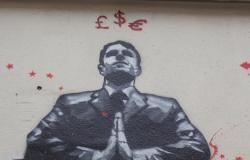A Europe of Different Needs, Not Different Speeds

Europe has its confidence back. After a series of setbacks, Europe’s centre has held in the face of an electoral assault from both political flanks.
But renewed confidence is not an excuse for resumed complacency. The European Union cannot simply ride out the storm that has manifested itself in elections across Britain, Poland, Greece, and France. There is a prevailing sense of urgency and dissatisfaction. But this is where the agreement stops. Europe has been in almost constant crisis since the eruption of the global financial crisis, yet no shared sense of what needs to be done and in what order has yet emerged.
The one dominant theme in the reform debate has been the idea of a multi-speed Europe. This is a vision of a European destination to which every member state progresses at its own rate, with a vanguard pressing forward. It ignores the suspicion and hostility of voters, of which the Brexit referendum is only the latest in a long line of examples.
Most of all it ignores the needs of individual countries. Undeniably Europe needs a vision, but the vision that its member-state governments find themselves elected to enact is profoundly domestic.
Fundamentally, we need to think of a Europe of different needs not different speeds.
Yes, there are shared European values and civil liberties. The European project also includes common standards. But it must also respect the identities of the states that compose it. Values do not extend to the fine print of social and labour market reforms, levels of taxation, or regulation above and beyond the essentials of a single market.
Member states, potential entrants and even exiting countries have hugely different needs based on their existing industrial bases, demographic developments, and communist legacies and – in the case of Balkan states – post-conflict burdens. According to the World Economic Forum’s own Global Competitiveness Report, eight of the ten most competitive economies in Europe are member states from Northwest Europe – with Switzerland and Norway completing the ranking.
While it is imperative to bridge that North-South divide in competitiveness, it cannot be imposed from above nor can it be the sole rationale for how we conduct business in the union. Nor can anyone realistically expect this divide to vanish overnight.
It is clear, however, that creating a more equitable economic landscape in Europe will be beneficial for citizens in all corners of Europe and rekindle Europe’s appeal to its neighbours – creating stability in a world otherwise wracked by conflict and insecurity.
European leaders need to find the right approach to take all these different needs into account – even the differences in perception as they undoubtedly exist, for example, between Britain and parts of continental Europe.
Being right is not the same as doing the right thing
Germans can be glad that their country navigated the economic crisis so effectively, kept unemployment at manageable levels and emerged in some respects even stronger. Yet as Europeans, we have to acknowledge that the growing trade surplus is creating an imbalance that might not be sustainable.
The almost magnetic effect of Berlin for European millennials and the pull forces of a strong labour market overall are only exacerbating the divide as we move from an economic model driven by cash investment to an economy driven by talent and ideas.
I am realistic enough to know that no government can agree to a major debt relief only months before a contested election. But I am optimistic that leaders in the currently more competitive parts of Europe will see the wisdom of ensuring mutual benefits and progress for all members of this union.
Germany’s coalition government decided – against considerable domestic backlash – to welcome refugees fleeing the horrors of war and fratricide in Syria and Iraq. It spent considerable political capital on a contentious matter that will prove its long-term value for a country facing demographic challenges. It is an example of responsive and responsible leadership that rises above the national egoisms that are oftentimes driving the political process in Brussels and smothering reform efforts in the process.
I call upon political leaders but also their counterparts in the private sector to emulate that example. My second ask is this: let us resist the current perception in some parts of Europe’s political landscape that compromise is a sign of weakness and inefficiency. It is one of the most crucial tools in our arsenal of democratic decision-making and in fact one of the building blocks that this union is built on.
Klaus Schwab was born in Germany in 1938. He holds two doctoral degrees, one in mechanical engineering and another in economics and social sciences, and started his professional life as the youngest professor at the University of Geneva. He is the recipient of numerous awards and holds honorary professorships and doctorates from universities around the world. Schwab founded the Forum in 1971. In 1998, he and his wife Hilde created the Schwab Foundation for Social Entrepreneurship, which supports social initiatives that significantly improve people’s lives and can be reproduced on a global scale. In 2014, hoping to integrate more young people into global decision-making processes, Schwab established the Forum of Young Global Leaders for leaders under the age of 40. Seven years later, he created the Global Shapers Community, for potential leaders between the ages of 20 and 30. This post first appeared on the World Economic Forum's Agenda blog.
Photo credit: Jeanne Menjoulet via Foter.com / CC BY


